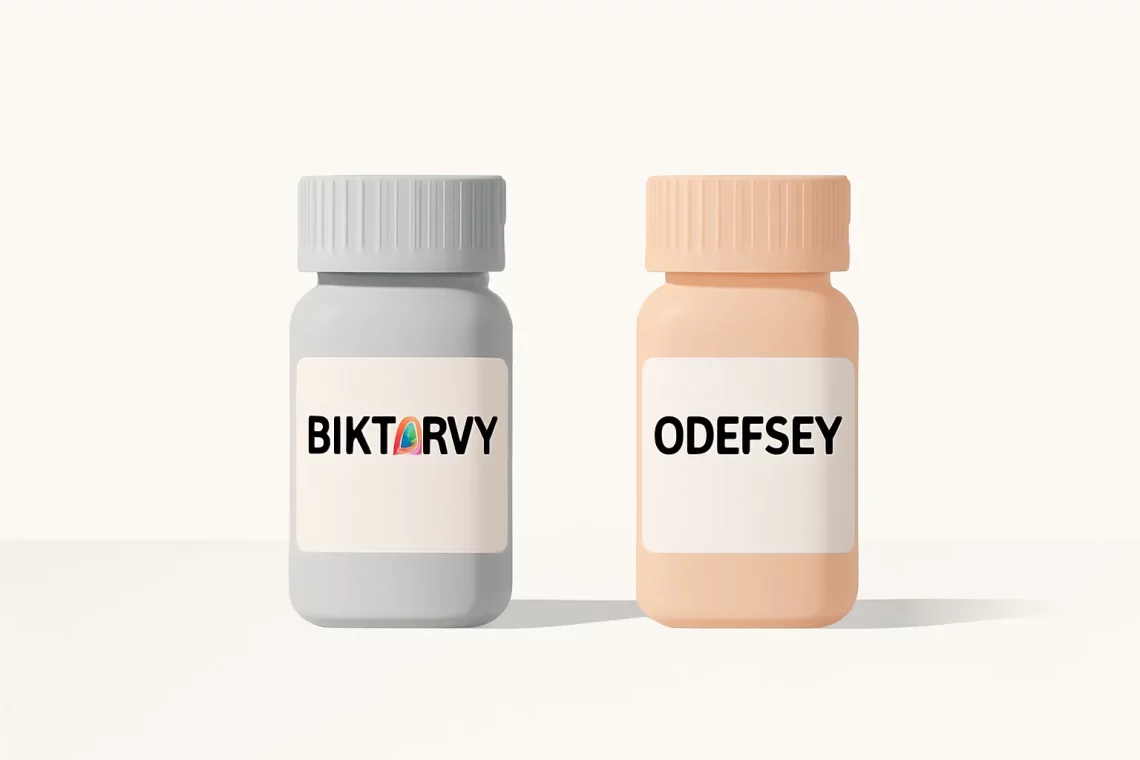Health
-
Prednisone vs Kenalog: Key Differences and Uses Explained
Prednisone and Kenalog are two medications often utilized for their anti-inflammatory and immunosuppressive properties. While both drugs can be effective in treating a variety of conditions, they differ significantly in their composition, mechanisms of action, and the specific situations in which they are used. Understanding these differences is crucial for patients and healthcare providers alike, as it can significantly influence treatment decisions. Prednisone is a synthetic corticosteroid that mimics the effects of cortisol, a hormone produced by the adrenal glands. It is widely prescribed for conditions such as asthma, allergies, arthritis, and autoimmune diseases due to its ability to reduce inflammation and suppress the immune system. On the other hand,…
-
Citalopram vs Sertraline Which Antidepressant is Right for You
Citalopram and sertraline are two widely prescribed antidepressants that belong to the selective serotonin reuptake inhibitor (SSRI) class of medications. These drugs are primarily used to treat various forms of depression and anxiety disorders, offering relief to countless individuals struggling with these conditions. The increasing prevalence of mental health issues has led to a growing interest in understanding the effectiveness and differences between these two medications. Both citalopram and sertraline work by increasing the levels of serotonin in the brain, a neurotransmitter that plays a crucial role in mood regulation. Despite their similar functions, they have distinct characteristics, side effects, and dosing regimens that can influence the choice of one…
-
Acetaminophen vs Aleve: Which Pain Reliever is Right for You?
Acetaminophen and Aleve are two popular over-the-counter medications widely used for pain relief and inflammation reduction. Both have established themselves as household names, often found in cabinets for quick access during times of discomfort. Despite their common purpose, these medications differ significantly in their composition, mechanisms of action, and potential side effects. Understanding these differences is key for making informed decisions about which option might be best suited for individual health needs. As many people seek relief from headaches, muscle pain, or even arthritis, knowing the specifics of acetaminophen and Aleve can aid in choosing the right treatment. Moreover, with the abundance of information available online, it’s crucial to rely…
-
Benzonatate vs Hydrocodone: Which Cough Suppressant is Better?
Benzonatate and hydrocodone are two medications commonly prescribed for the relief of cough and respiratory symptoms. As the landscape of healthcare evolves, understanding the differences, uses, and potential side effects of these drugs becomes increasingly important for patients and healthcare providers alike. Benzonatate is a non-narcotic cough suppressant, while hydrocodone is an opioid that offers pain relief in addition to its cough-suppressing properties. The rise of opioid use has led to heightened awareness of the potential for addiction and misuse, prompting patients to seek alternatives. Meanwhile, benzonatate has gained popularity for its non-addictive nature and effectiveness in managing cough without the sedation associated with opioids. The decision to use one…
-
Ibuprofen vs Tylenol: Which Pain Reliever is Right for You?
Pain relief is a common concern for many individuals, as discomfort can arise from a variety of sources, including headaches, muscle aches, arthritis, and other conditions. In the quest for effective pain management, over-the-counter medications such as ibuprofen and acetaminophen (often known by the brand name Tylenol) have become household names. These medications are widely used due to their accessibility and effectiveness, but they operate differently in the body and can have varying effects depending on the individual’s specific health needs. Understanding the nuances between ibuprofen and Tylenol can empower individuals to make informed choices about their pain management strategies. Factors such as the type of pain being treated, personal…
-
Wellbutrin vs Lexapro: Choosing the Right Antidepressant for You
The decision to seek help for mental health issues is both courageous and essential. As more individuals confront the realities of conditions like depression and anxiety, the demand for effective treatments has grown significantly. Among the various options available, two medications that often come up in discussions are Wellbutrin and Lexapro. Both of these medications have their unique attributes, potential benefits, and side effects, making them popular choices among healthcare providers for treating mood disorders. Understanding how they work, their differences, and their respective impacts on mental health can empower individuals to make informed decisions about their treatment options. As we delve deeper, it’s important to recognize that each person’s…
-
Melatonin vs ZzzQuil: Which Sleep Aid Is Right for You?
Sleep is an essential component of our overall health and well-being, yet many individuals struggle to achieve a good night’s rest. Factors such as stress, anxiety, and lifestyle choices can disrupt the natural sleep cycle, leading to insomnia and other sleep-related issues. In response to this growing concern, various remedies have emerged in the market, with melatonin and ZzzQuil being two of the most popular options. Melatonin is a hormone that regulates the sleep-wake cycle, produced naturally by the body in response to darkness. It’s often used as a supplement for those experiencing difficulties in falling asleep or adjusting to new time zones. On the other hand, ZzzQuil is an…
-
Prednisone vs Medrol: Key Differences and Uses Explained
Prednisone and Medrol are two widely used corticosteroids that play a significant role in the treatment of various medical conditions. Both medications are synthetically derived from naturally occurring hormones produced by the adrenal glands, and they possess powerful anti-inflammatory and immunosuppressive properties. The use of corticosteroids has become increasingly common in modern medicine, providing relief for patients suffering from autoimmune disorders, allergies, asthma, and a range of other inflammatory conditions. However, despite their similarities, Prednisone and Medrol exhibit distinct pharmacological profiles, dosing regimens, and side effect profiles that can influence their effectiveness and safety in individual patients. As patients and healthcare providers navigate the complexities of these medications, understanding the…
-
Pantoprazole vs Protonix: Key Differences and Similarities Explained
Pantoprazole and Protonix are both medications that belong to a class of drugs known as proton pump inhibitors (PPIs). These medications are commonly used to treat conditions related to excessive stomach acid production. The use of PPIs has gained popularity due to their effectiveness in providing relief from symptoms associated with gastroesophageal reflux disease (GERD), peptic ulcers, and other gastrointestinal disorders. As more individuals seek effective treatment for their acid-related conditions, understanding the differences and similarities between various PPIs becomes essential. Patients often look for medications that not only alleviate their symptoms but also come with manageable side effects. In this context, Pantoprazole and Protonix have emerged as two noteworthy…
-
Biktarvy vs Odefsey: A Comprehensive Comparison of HIV Treatments
In recent years, the landscape of HIV treatment has evolved significantly, offering patients a range of options tailored to their specific needs. With the rise of antiretroviral therapy, medications like Biktarvy and Odefsey have gained prominence for their effectiveness and convenience. As individuals living with HIV navigate their treatment journey, understanding the differences between these two regimens becomes crucial for making informed decisions. Both Biktarvy and Odefsey represent advanced formulations aimed at simplifying the treatment process, reducing pill burden, and improving adherence. These medications combine different classes of antiretroviral drugs to achieve viral suppression while minimizing side effects. As a result, patients are often left wondering which option might be…







































